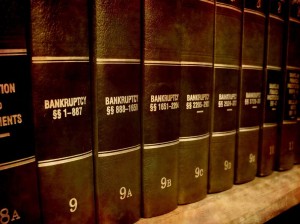 No, most forms of retirement savings are unaffected by a bankruptcy filing, either because they are not property of the estate or because they may be claimed exempt from the claims of creditors.
No, most forms of retirement savings are unaffected by a bankruptcy filing, either because they are not property of the estate or because they may be claimed exempt from the claims of creditors.
ERISA pension plans
The Supreme Court has held that an employee’s interests in pension plans that are qualified under ERISA are not property of the estate: the debtor doesn’t even have to exempt them in bankruptcy. If an assets is not property of the estate, the trustee can’t cash it in for the benefit of creditors.
IRAs and Keogh Plans
Retirement savings that are property of the estate, such as some Keogh plans and IRAs, can be claimed as exempt up to approximately one million dollars.
